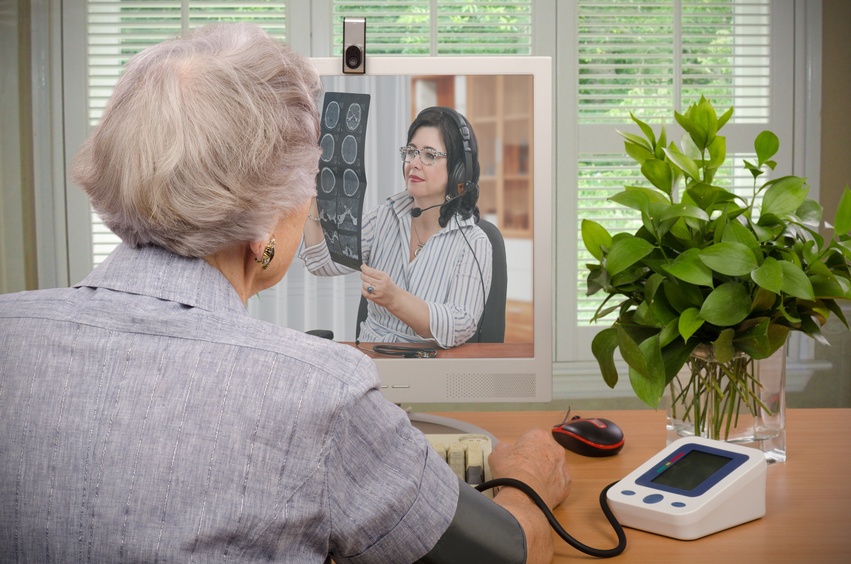
What’s Influencing Telemental Health
Underneath the general category of telehealth or telemedicine, there’s an increasing focus on telemental health, a subspeciality of telemedicine. What is telemental health? According to the Telemental Health Guide, it’s the provision of mental health services using live, interactive videoconferencing.” The guide also notes that, “all mental health procedures that are delivered ‘face to face’ can be delivered remotely via telemental health.”
A significant problem, country wide
What’s influencing telemental health is the fact that mental health is such a significant problem, country-wide:
In any given year, about 25% of the population has a diagnosable disorder—about two-thirds of which go untreated.
Among people with behavioral health issues (mental health plus substance abuse), about nine-tenths go untreated, data from the Substance Abuse and Mental Health Services Administration shows.
In addition, roughly a third of people with one of the four leading chronic illness — cardiovascular problems, cancer, chronic obstructive pulmonary disorder, or diabetes — also have a co-occurring behavioral health disorder, says Marlene Maheu, executive director of the TeleMental Health Institute, which offers consultations and professional training.
The impact on costs is jarring. According to a study in the June issue of Health Affairs, mental disorders consume more healthcare dollars than any other condition in the U.S., totaling $201 billion in 2013. (Source: Healthcare DIVE)
Telemental health is especially critical for those areas that are underserved, where there is an uneven distribution of resources and a shortage of supporting infrastructure. But even in those communities where there is generally better access to the full range of healthcare services, many of those in need continue to fall between the mental health cracks. Insurance coverage is often insufficient, covering only a limited amount of care.
While telemental health may never get to the point of being a main source of care – some providers feel that face-to-face encounters are preferable – it is a good secondary option.
Telemental health promises a number of benefits.
These include:
- Increased access to care
- Positive outcomes
- Reduced hospitalizations and psychiatric admissions
And, going beyond the definition of telemental health as being videoconferencing-based, with today’s technology, the provision of telemental health will be expanding to include additional capabilities, such as monitoring medication use. (Non-compliance with prescribed medicines is a major issue.) But there will be many other usages, as mHealth (mobile health) apps increasingly focus on mental health. Today, according to mhealthintelligence.com, citing a new report on the telemental health industry, approximately “6 percent of mHealth apps on the market are focused on mental health services, the report found, while another 11 percent offer stress management services.”
Report takes a state by state look at telemental health
The report cited above is from the law firm Epstein Becker Green, which has just published the results of a survey that reviewed rules and regulations for telemental health in all 50 states and the District of Columbia. (The full report can be found here.)
It almost goes without saying that there are a patchwork of laws across states, which make the provision of telemental health services which, by their very nature, are borderless, difficult terrain to navigate. For one thing, providers (in general) must be licensed in the state where they’re providing services, and where their patients live. (If there’s a crisis that requires hospitalization, how will it be handled if the provider is in California and the patient in Georgia?) Another issue: insurance coverage for in-person vs. telemental health services. To date, only 60% of the states have addressed this issue. Most providers are cash-only to avoid this problem. Prescribing can also be difficult online, as there is a regulation in place that requires at least one in-person visit before prescribing a controlled substance.
There’s also the issue of privacy. While many patients will feel more comfortable staying in their own homes rather than going into an office for treatment, some have concerns about whether the confidential information they reveal in a video-conference setting will be secure enough.
As telemedicine – and telemental health – becomes more widely adopted, these issues will be resolved.
In the meantime, those developing mHealth applications will continue to look for new ways to help provide critical services. (And Orbita will be there with a platform designed for healthcare that will help them do so!)
